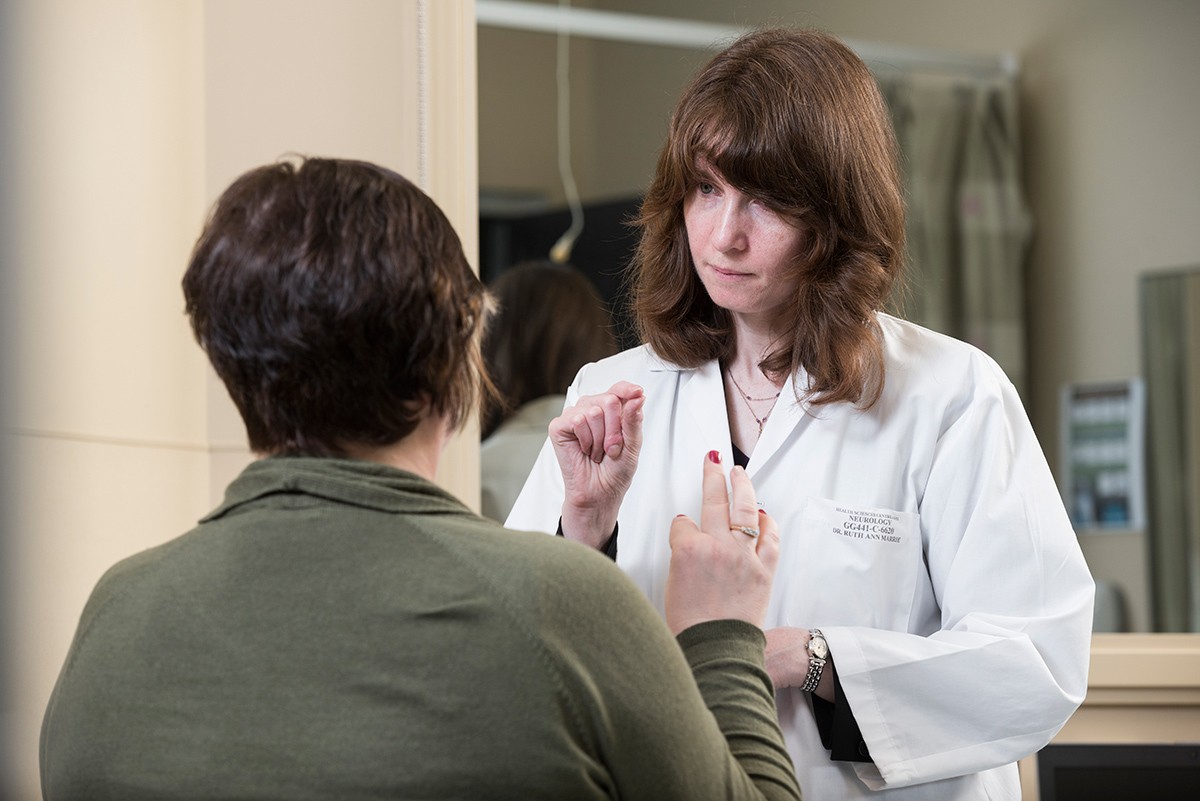
Dr. Ruth Ann Marrie
World Multiple Sclerosis Day marks the importance of funding health research
With approximately one out of every 400 Canadians living with MS, and increasing rates of diagnosis, World Multiple Sclerosis Day hits very close to home for many. Today, May 30, is a day to take the time to talk about this devastating disease and educate ourselves.

Rick Waugh
UM alum Rick Waugh’s family is directly affected by MS. His sister-in-law, Claire Larson, a UM Kinesiology alum herself, was diagnosed with MS at a young age and has lived for many years with the disease. The Waugh family has witnessed the toll it can take, but it is her resiliency that inspired them to create and fund a Research Chair in Multiple Sclerosis at their alma mater. The goal of this work is to learn more about MS and how it affects patients living with other comorbidities to improve quality of life.
When asked about why World Multiple Sclerosis Day is important, Waugh says, “It can mobilize and increase awareness of the importance of funding that will hopefully raise enough internationally to end MS.”
In 2016, Dr. Ruth Ann Marrie was awarded the Waugh Family Chair in Multiple Sclerosis to advance this vital research. The donation to create this Chair has allowed Dr. Marrie to focus her time and resources on how coexisting health conditions such as depression/anxiety disorders, diabetes or cardiac conditions may affect diagnosis, treatment and outcomes for MS patients.
“Our findings suggest that if we effectively detected and treated people’s depression/anxiety disorders, we could dramatically improve their quality of life,” says Dr. Marrie. “Our findings also suggest that other co-existing health conditions, such as diabetes, also affect MS. So all of that really raises the question of whether doing something about those coexisting health conditions could actually make MS better.”
The COVID-19 pandemic has impacted the availability of research resources over the past two years, but this dedicated funding has ensured Dr. Marrie’s research can continue uninterrupted.
“There have been a lot of ups and downs with research resources, so this funding has been important in allowing us to keep our team together to and retain their expertise in our research area,” Dr. Marrie says.
Not only does Canada have a high frequency of MS, but by province Manitoba has among the highest number of cases per capita in the country, which is another reason why Waugh and his family chose to give back. Though he lives in Toronto after relocating to be the CEO of Scotiabank, the now retired Waugh believes that philanthropy has a major role to play in the future of healthcare and UM is making those strides.
“Our family’s focus has been on people,” says Waugh. “That is why the chair is about getting the right people to make a difference. Funding research can make positive change in the health of people on a day-to-day basis through diagnosis, treatment and wait time.”
Days like World Multiple Sclerosis Day are a reminder that more work needs to be done. Researchers like Dr. Marrie and her team are making strides, but funding is the only way they can truly move the needle on MS.






